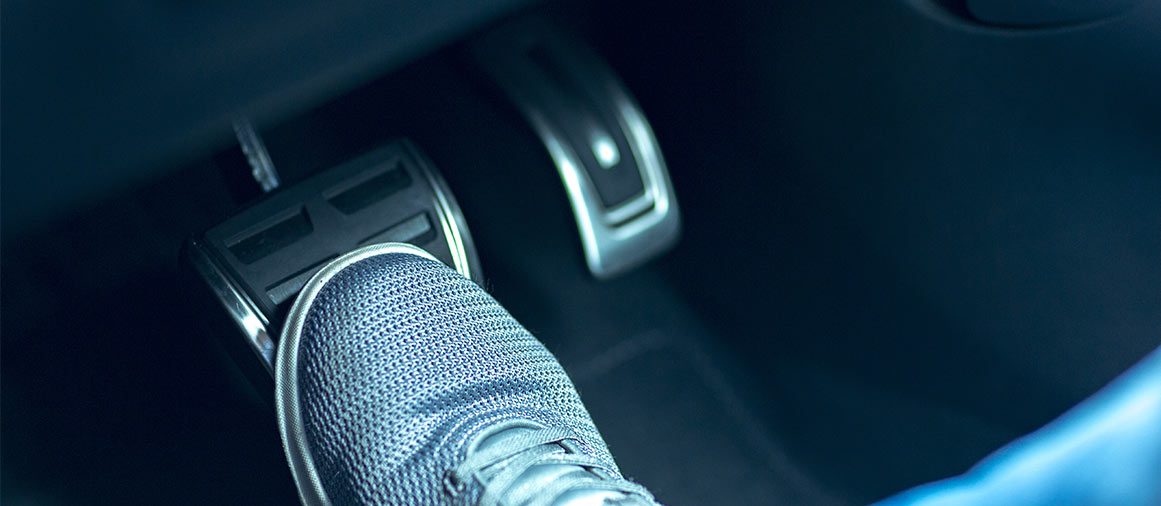A putative class action filed against General Motors LLC (“GM”) alleges defective braking systems are installed in certain GM vehicles. Specifically, as set forth in a third amended complaint filed June 5, 2020, by plaintiffs Scott Peckerar and Samantha Peckerar, on behalf of themselves and all others similarly situated, the defective brake systems were installed in:
- 2015 “to present” Cadillac Escalades
- 2014 “to present” Chevrolet Silverados
- 2015 “to present” Chevrolet Suburbans
- 2015 “to present” Chevrolet Tahoes
- 2014 “to present” GMC Sierras
- 2015 “to present” GMC Yukon/Yukon XLs
The complaint describes the alleged defect as follows:
The irreparable and defective braking system supplied in all of the Class Vehicles features a defective design that is prone to sudden and unexpected loss of vacuum in the brake booster, requiring replacement of the brake booster and/or the system’s vacuum assist pump. When Class Vehicles suddenly and unexpectedly lose vacuum, the resulting brake booster failure makes Class Vehicles difficult to stop: the brake pedal becomes hard, much more force is required from the driver to slow the vehicle, and stopping distance is severely and suddenly compromised. The defective braking system common to all Class Vehicles is a clear safety hazard that was never disclosed to any member of the class prior to purchase. This hazard present in all Class Vehicles is hereinafter referred to as the “Class Defect.” Failure of the vacuum pump as a result of the Class Defect requires replacement of the vacuum pump to restore brake boost to the driver. Occasionally, vacuum pump failure also leads to the presence of engine oil in the vacuum line connected to the brake booster, or in the brake booster itself; in these instances, replacement of the brake booster is required in addition to replacement of the vacuum pump.
The plaintiffs allege GM has been aware of this issue since at least 2014, and did not publicly admit the alleged defect in the United States until September 2019, when it issued Safety Recall 19V645000, which stated “In some circumstances these [Class Vehicles] may have a condition in which the engine-mounted mechanical vacuum pump output may decrease overtime, decreasing the amount of vacuum/power brake assist.” The plaintiffs contend the recall “did nothing” to resolve the defect and, further, did not notify them of the true nature of the defect, which they believe GM was notified of during 2014 engineering tests.
As alleged in the complaint, Scott and Samantha Peckerar experienced the following with respect to their 2017 Chevrolet Suburban: in April 2017, Paradise Chevrolet was performing maintenance on their vehicle and found a leak of engine oil, and diagnosed a failed vacuum pump. The vehicle was still covered by GM’s express bumper-to-pumper limited warranty, and they had owned it for less than a year. The original repair for the vacuum pump was replaced under warranty, but this fix did not remedy the defect in the braking system. In April 2018, Samantha Peckerar was driving and experienced a rattling issue with her brakes. She pressed her brake pedal, but the pedal became hard and prevented her from stopping, resulting in a collision with the vehicle in front of her. Plaintiffs informed GM of the issue, which sent an investigator to inspect the vehicle. GM’s representatives told Plaintiffs no electronic data from the vehicle evidenced a defect and Samantha Peckerar should consult her manual to understand the operation of her vehicle’s brakes. GM refused to do any field testing of the vehicle and instead attempted to induce plaintiffs into signing a release of any claims of liability against GM or its franchised dealerships, including a promise of confidentiality, in exchange for the cost of repair to the vehicle’s front bumper. The plaintiffs instead took their vehicle to Paradise Chevrolet, which drove the vehicle to confirm it failed to maintain vacuum boost. The cause of the collision was confirmed to be a second in-warranty failure of the vacuum pump. Scott Peckerar subsequently experienced a third instance of loss of vacuum brake boost, passing through a crosswalk and illegally entering an intersection despite his best efforts to slow the vehicle.
The plaintiffs raise claims including violations of the California Consumer Legal Remedies Act, the California Unfair Competition Law, and breach of implied warranty.
The lawsuit seeks remedies including damages, attorney’s fees, and the “repair of, replacement of, or refund of money paid to own or lease all Class Vehicles in California.”
In June 2020, GM filed a motion to dismiss, which the court denied in August 2020. On September 21, 2020, GM filed its answer to the third amended complaint. However, on October 16, 2020, the parties filed a notice of settlement, notifying the court that the parties had resolved the matter on an individual basis and that the parties were in the process of memorializing the settlement terms into a final written agreement. No later than 60 days after full execution of the agreements, the parties will file a stipulation of dismissal. The case is Scott Peckerar and Samantha Peckerar, on behalf of themselves and all others similarly situated v. General Motors LLC, case number 5:18-cv-02153-DMG-SP, in the U.S. District Court for the Central District of California.





